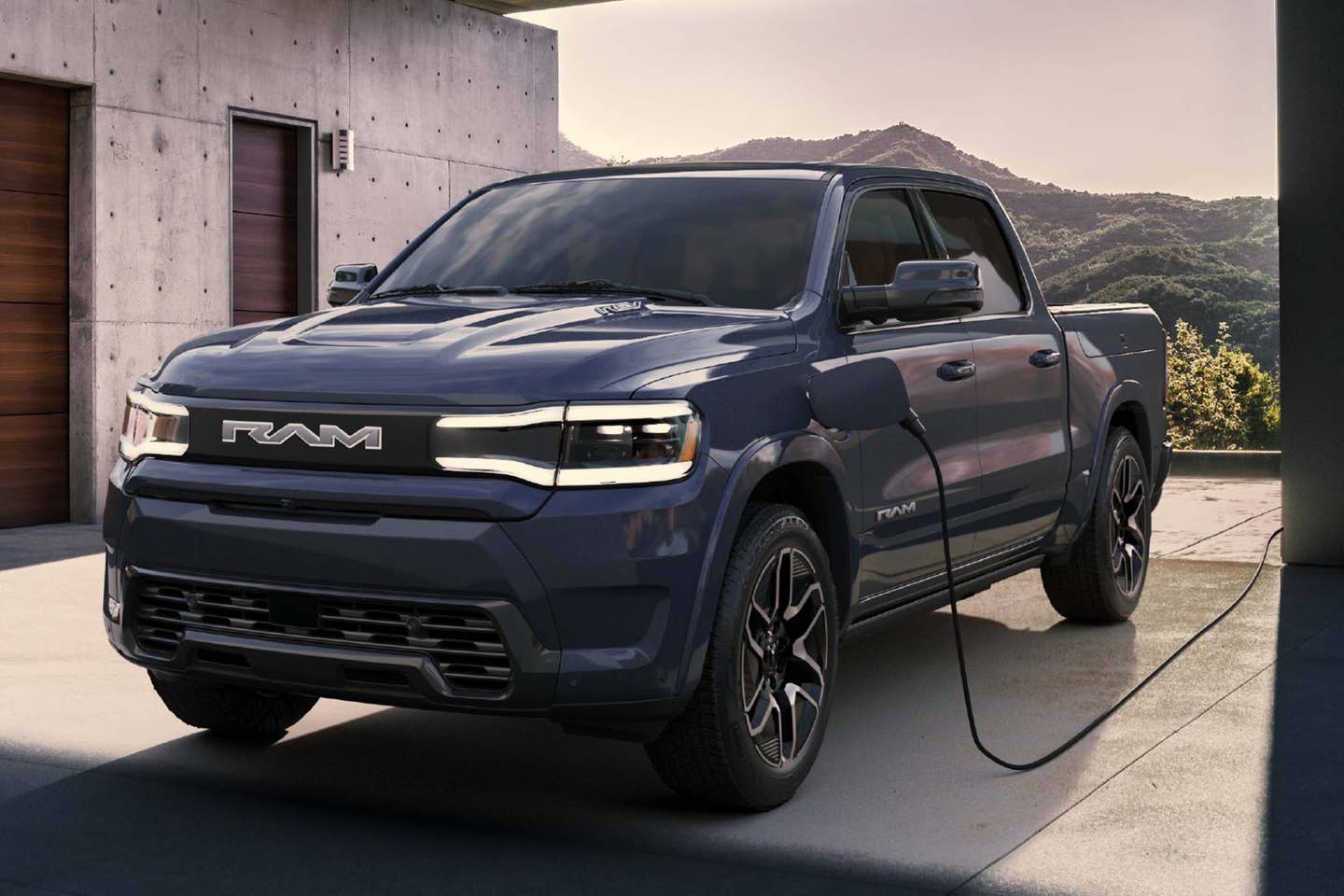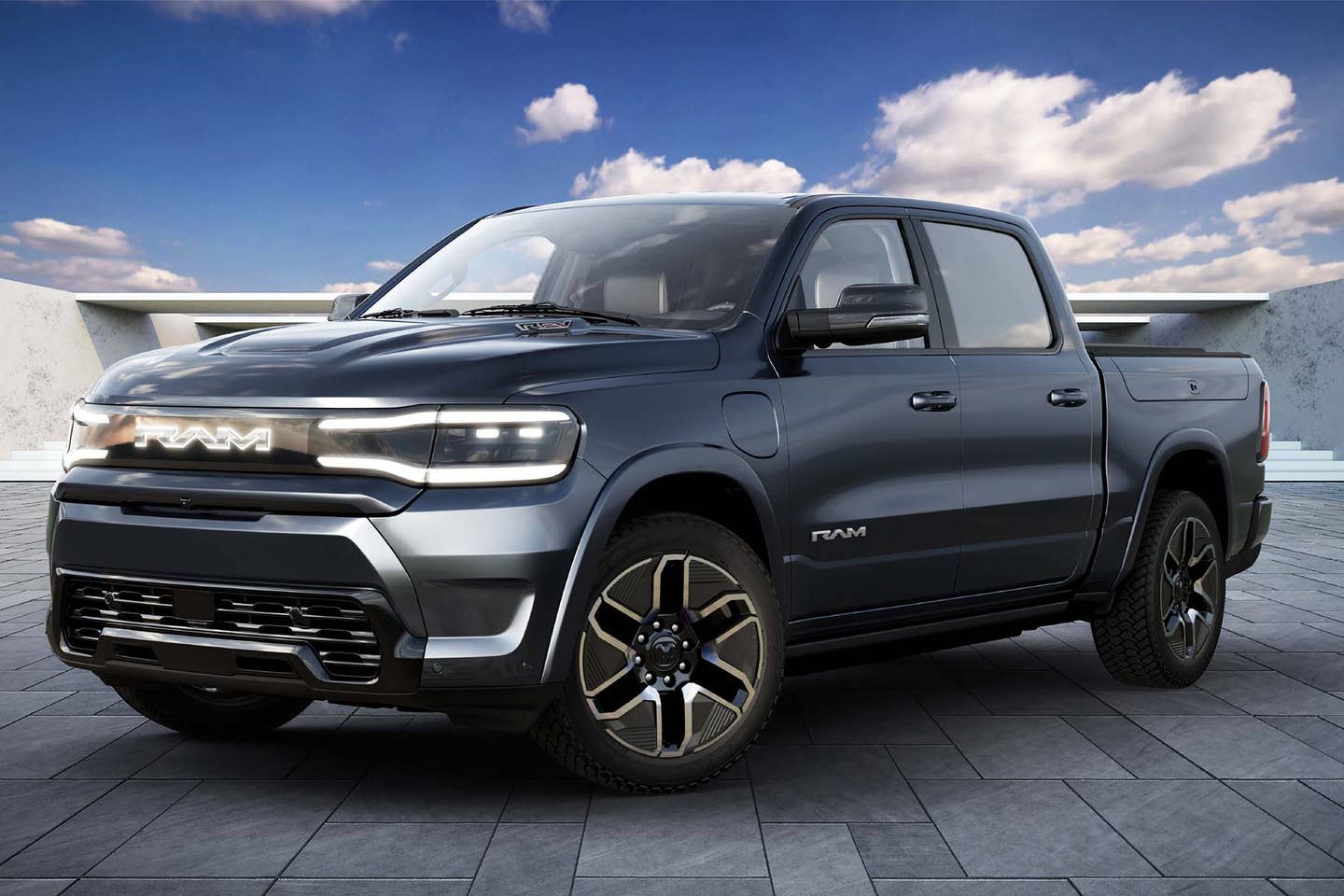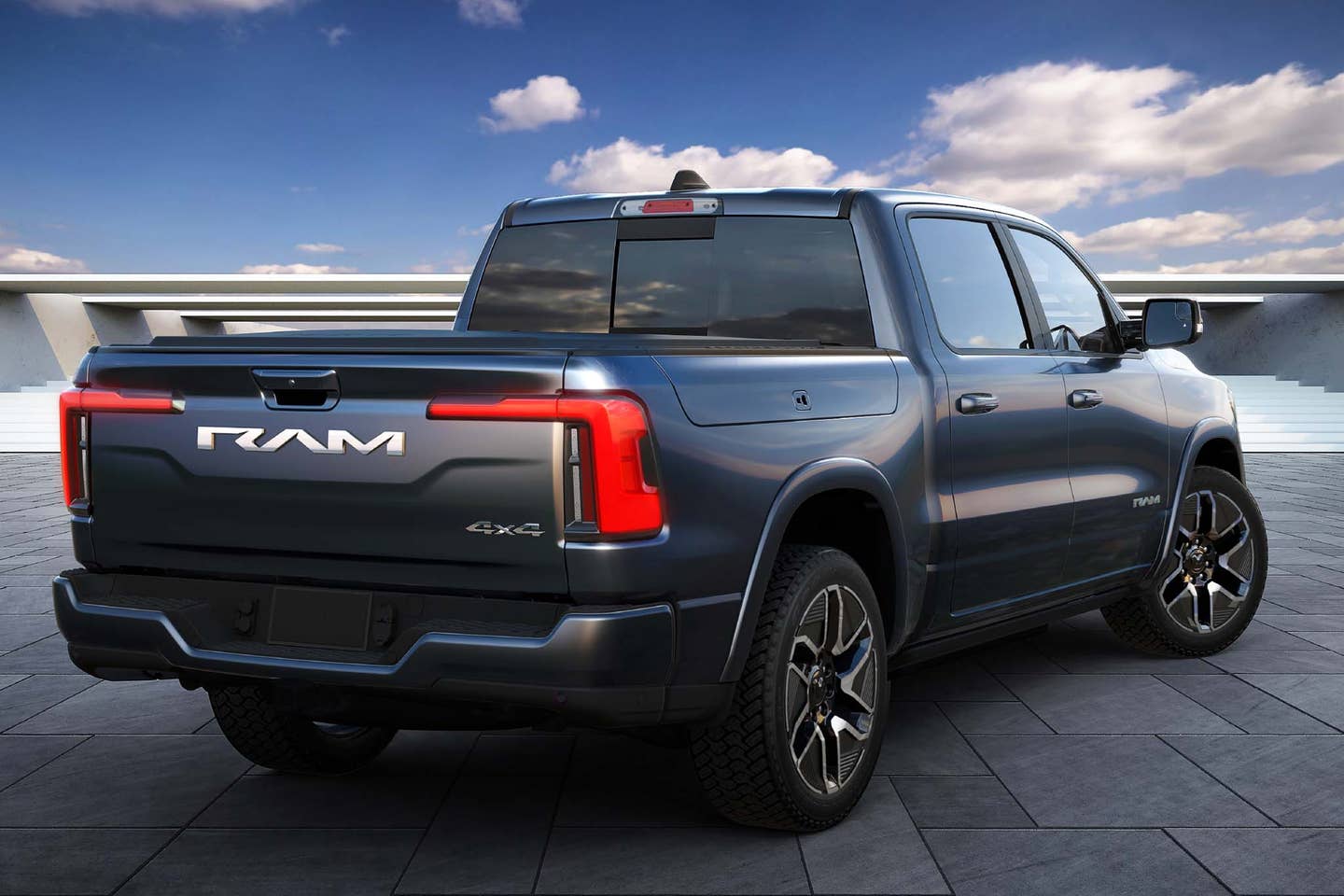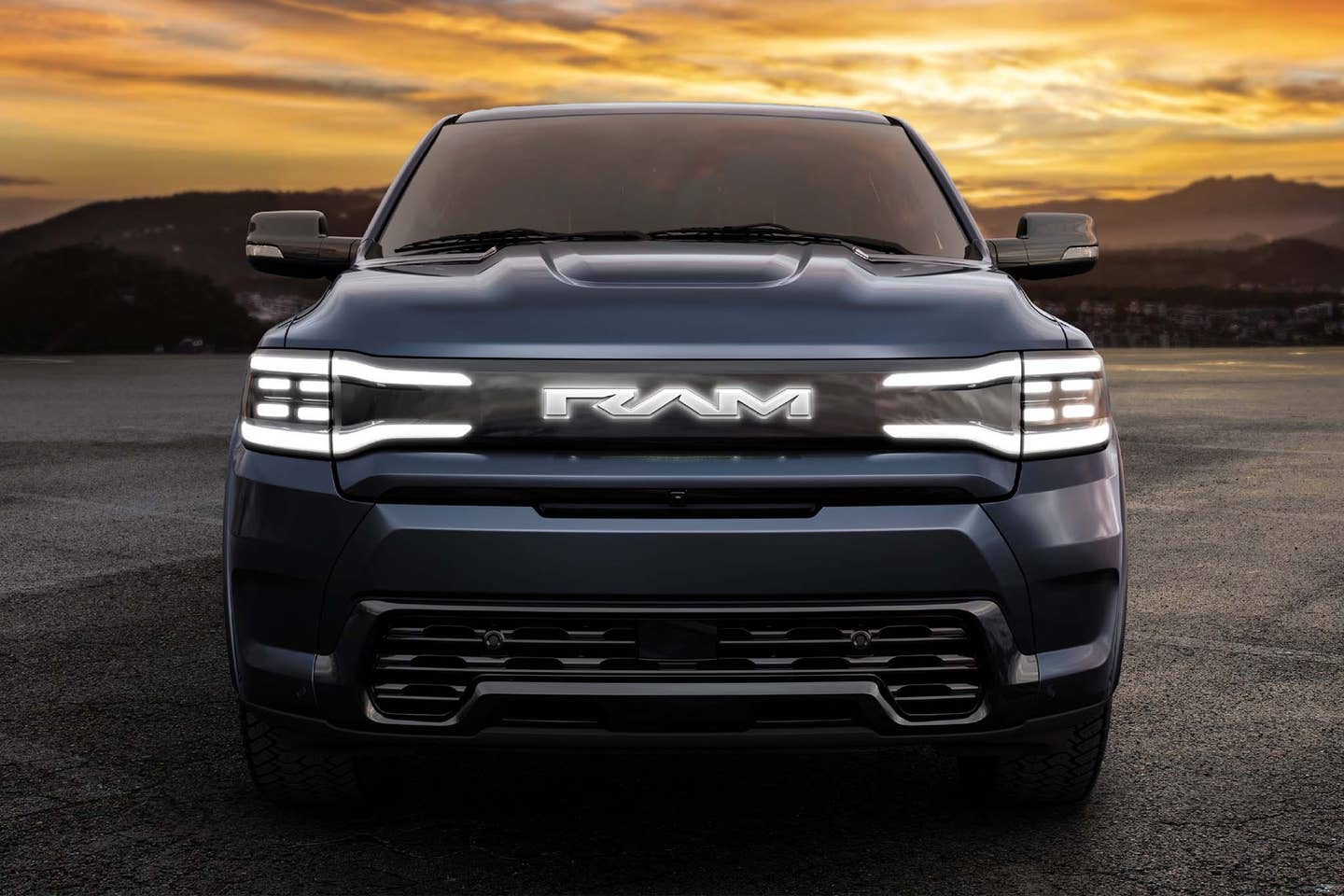When the electric Ram 1500 REV debuts in late 2024, it won’t be the frontrunner. By that time, the Ford F-150 Lightning, Rivian R1T, and GMC Hummer EV will already have two years under their belts. However, Ram is taking a unique electrification approach by melding battery power with an internal combustion range extender to alleviate range anxiety. The emphasis on this in their Super Bowl advertisement suggests that Ram is counting on this strategy to set their truck apart.
For those who missed it, the Super Bowl ad for the Ram 1500 REV delves into the topic of premature electrification. It cleverly conveys Ram’s vision of what an electric pickup truck should be for consumers, even if it means a longer wait. Beyond the playful wordplay, there are substantial concerns that Ram aims to address by not fully committing to electric propulsion just yet, especially when it comes to range.
It’s evident from the numerous forum discussions and social media rants that not everyone is ready for battery-electric pickups. While these trucks are suitable daily drivers like any other EV and excel in towing with their instant power, they falter when it comes to longer hauls. Some F-150 Lightning owners report that a full charge barely gets them 100 miles when pulling a heavy trailer. These experiences alone are enough to deter many potential buyers, regardless of whether they intend to use the truck for work or leisure.
This is a predicament that Ford and other automakers are aiming to address through ongoing developments like enhanced battery technology. Ram, on the other hand, seems to be biding its time until it can introduce an electric vehicle that matches the range, payload capacity, and towing capabilities of its combustion engine models. Recognizing that it may take significant time before batteries reach that level of power and endurance, Ram is exploring the range extender option, a path that others seem to have overlooked entirely.
The Ram 1500 REV is likely to incorporate a compact internal combustion engine solely for generating electricity to recharge the battery. This sets it apart from plug-in hybrids, which use gasoline engines to propel the vehicle, whereas in Ram’s case, this task will be delegated exclusively to the electric motors. Mazda has followed a similar approach with a rotary range extender in its MX-30 EV, and BMW adopted a comparable strategy with the i3.




Details about the production of the Ram 1500 REV are still pending, given that it is more than a year away. This approach may be the most effective way to win over skeptical EV enthusiasts, even if it appears to be a lukewarm solution for the broader market. Regardless, it seems like a more sensible allocation of resources than the third-row jump seats showcased in the Revolution concept from last month.
Have a tip or query for the writer? Reach out to them directly at: caleb@thedrive.com

